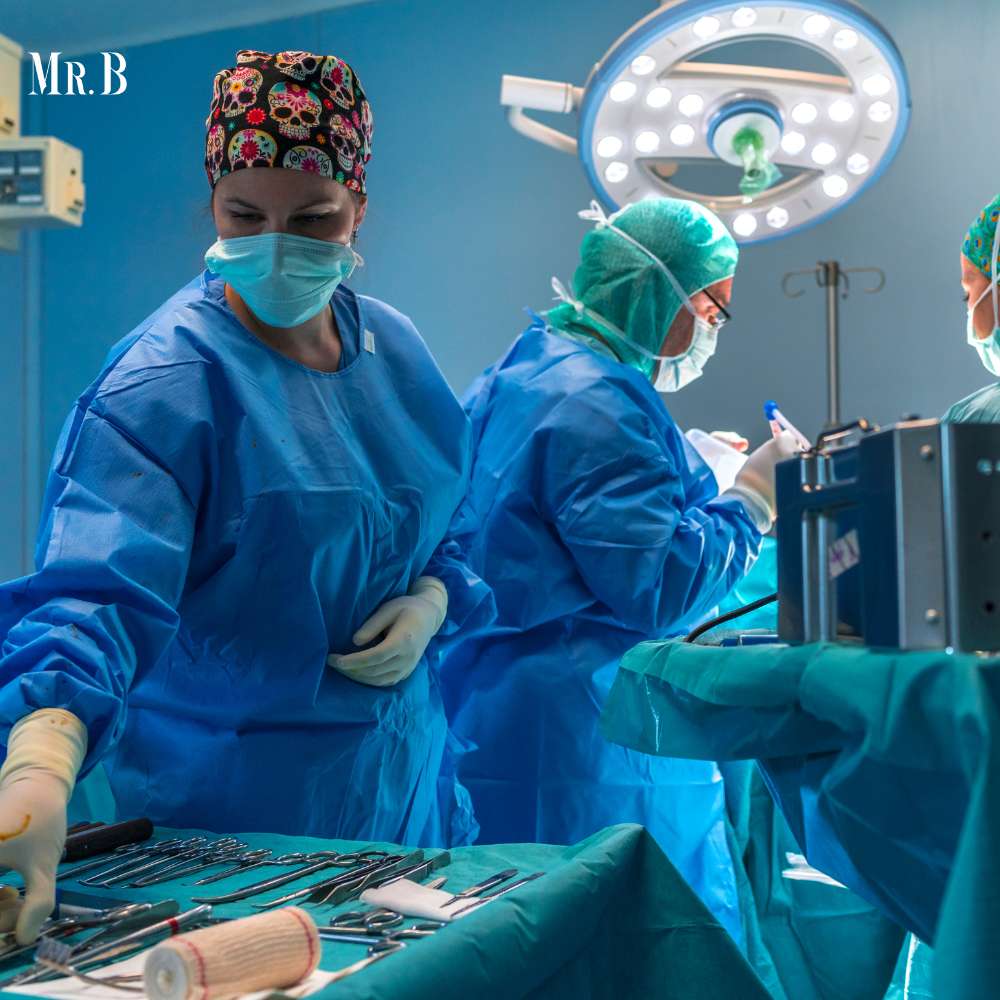A surgical technician is a trained healthcare professional that works in the operating room. He prepares patients, sterilizes the operative equipment’s, sets up the operation theater for starting the procedure, and does anything else needed. He has to ensure that the work will go on smoothly. It is a right, lucrative career, but it isn’t for everyone. A surgical technician is an important part of the surgical process. It can act as a rewarding career by helping patients and saving lives.
The surgical technician is responsible for laying out all necessary equipment, sanitizing the surgery space, and ensuring all proper machinery is there in the room, and it is functioning too. At the time of the operation, the technicians are often in the room with the doctors, nurses, and other medical personnel. Some post-operative procedures are also done by a technician. They are also responsible for taking care of the openings.
The Role of a Surgical Technician
Surgical technicians are healthcare professionals trained to provide support during surgical procedures. Their responsibilities are both varied and vital:
1. Preoperative Preparation:
Surgical technicians assist in preparing the operating room (OR) before a procedure. This includes sterilizing surgical instruments, arranging surgical supplies, and ensuring that all equipment is functioning correctly.
2. Patient Care:
They help prepare the patient for surgery by positioning and draping them in a sterile manner. This involves following strict infection control protocols to minimize the risk of surgical site infections.
3. Handing Instruments:
During the surgery, surgical technicians are responsible for passing sterile instruments and supplies to the surgeon and surgical team. They must have a deep understanding of surgical procedures to anticipate the needs of the surgeon.

4. Maintaining a Sterile Field:
Maintaining a sterile environment within the OR is crucial. They are diligent in ensuring that sterile drapes and barriers are maintained throughout the procedure.
5. Instrument Care:
They clean and maintain surgical instruments, ensuring that they are in good working condition for each procedure. Proper handling and care of instruments are critical for patient safety.
6. Suture Assistance:
They may assist with suturing, applying dressings, and wound closure after the surgeon has completed the primary procedure.
7. Emergency Situations:
In the event of an emergency, surgical technicians must be ready to assist the surgical team by providing necessary equipment or supplies quickly.
8. Documentation:
They are responsible for documenting details of the procedure, including instrument counts and other critical information for the patient’s medical records.
The Pros and Cons of Being a Surgical Technician
Pros:
1. High Demand:
The healthcare industry consistently seeks skilled surgical technicians. The demand is expected to grow as the aging population requires more surgical procedures.
2. Job Stability:
Job security is high, given the continuous need for these technicians in hospitals, outpatient centers, and surgical clinics.

3. Fulfilling Work:
Knowing that your role contributes directly to saving and improving lives can be highly rewarding.
4. Quick Entry:
Compared to other healthcare professions, the path to becoming a surgical technician is relatively shorter. Most programs can be completed in one to two years.
5. Teamwork:
They work closely with surgeons, nurses, anesthesiologists, and other healthcare professionals. This collaborative environment can be intellectually stimulating.
Cons:
1. Intense Work:
The operating room can be a high-stress environment, especially during complex surgeries or emergency situations.
2. Physical Demands:
The job may require standing for long periods, lifting patients, and being on call during irregular hours.
3. Exposure to Infections:
There is a risk of exposure to infectious diseases in the operating room, despite rigorous safety precautions.
4. Emotional Toll:
Witnessing surgeries and dealing with the emotional and physical distress of patients can be emotionally challenging.
5. Repetitive Tasks:
Surgical technicians may find themselves performing repetitive tasks during procedures, which can become monotonous over time.
6. Essential Skills:
To excel in this profession, they should possess a range of skills, including:
7. Attention to Detail:
Precision and meticulous attention to detail are vital for maintaining a sterile surgical environment and ensuring the surgeon has the correct instruments.
8. Communication Skills:
Effective communication is crucial for collaboration within the surgical team and with patients.
9. Calm Under Pressure:
The ability to remain calm and focused in high-stress situations is essential.
10. Technical Proficiency:
Knowledge of surgical instruments, equipment, and surgical procedures is a core requirement.
11. Adaptability:
Surgical technicians must be adaptable, as no two surgeries are exactly alike.
12. Physical Stamina:
Endurance is necessary for standing for extended periods and assisting with patient positioning.

Why Surgical Technicians are Needed in Hospitals
They are indispensable in the hospital setting for several compelling reasons:
1. Patient Safety:
Their role in maintaining a sterile surgical field and preventing infections is paramount for patient safety.
2. Efficiency:
They play a critical role in ensuring that surgical procedures run smoothly and efficiently, which can reduce surgical time and improve patient outcomes.
3. Surgeon Support:
Surgeons rely on surgical technicians to provide them with the necessary instruments and supplies, allowing them to focus on the procedure at hand.
4. Emergency Response:
In the event of an emergency, they are prepared to assist the surgical team, ensuring a rapid and effective response.
5. Surgical Care Quality:
Their proficiency in instrument handling and knowledge of surgical procedures contribute to the overall quality of surgical care provided to patients.
Conclusion
Surgical technicians are unsung heroes in the healthcare industry, ensuring that surgical procedures are conducted safely and efficiently. Their roles encompass a wide array of responsibilities, all of which are vital for patient care. While the profession has its challenges, the rewards of job security, fulfillment, and opportunities for quick entry into the field make it an attractive career choice. As the demand for surgical technicians continues to grow, their significance in hospitals and healthcare settings remains undeniable, making them an integral part of the medical team.







